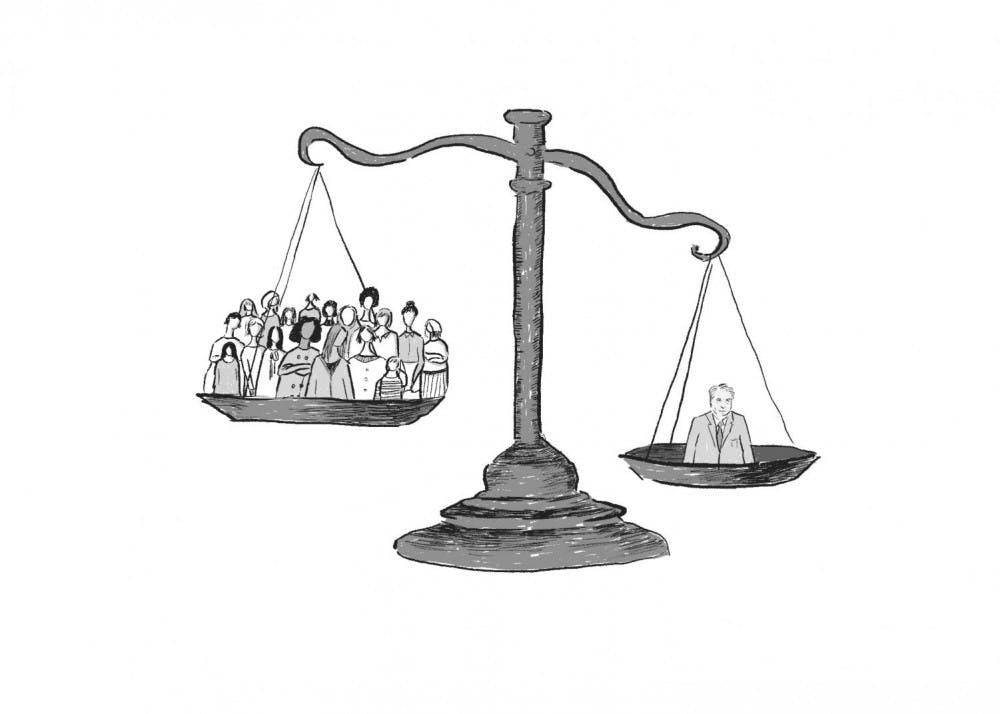MILLIE VON PLATEN
When someone is about to enter a public office, it is essential that we consider the implications that their new position of power will have for communities far beyond the insulated spheres of places like Washington D.C.
Brett Kavanaugh’s nomination to the Supreme Court, and the two sickening sexual assault allegations that have accompanied it have many troubling — but unsurprising — systemic similarities to Middlebury as an institution. These similarities must be addressed.
Kavanaugh grew up in Washington D.C. and attended Georgetown Preparatory School in North Bethesda, MD. Earlier this month, Dr. Christine Blasey Ford, who attended Holton-Arms — the all-girls sister school to Georgetown Prep — accused Kavanaugh of assaulting her at a party while they were both in high school.
Then, this Monday, another former classmate of Kavanaugh’s came forward: Deborah Ramirez, who was a student at Yale University with Kavanaugh, spoke at length in a New Yorker piece about how Kavanaugh had sexually assaulted her at a college party.
The allegations brought forward by Blasey Ford and Ramirez bear striking resemblances to those of many Middlebury students.
The party culture at Georgetown Prep, which, according to recent accounts provided by Kavanaugh’s former classmates, bred a culture of binge drinking, hypermasculinity and abuse, closely resembles that of Middlebury.
Reports at the college in years past of “Predator and Prey”- themed parties exemplify a party scene that perpetuates rape culture. Older students often warn first-year women of the dangers of Atwater parties. They encourage them to attend parties in big groups and to avoid drinking from cups that are not their own. This should not have to be the case. These trends are not unique to Middlebury, but they are unmistakably part of our culture.
When a national moment bears so many similarities to the community we inhabit, it is imperative that we use it as an opportunity for self-reflection and growth.
Kavanaugh’s defenders have asked whether he deserves to be held accountable for something he did 30 years ago, while under the influence of alcohol and during his teen years — a time when “boys will be boys,” when young men aren’t quite adults yet and, apparently, are allowed to escape the consequences of causing the lasting pain that sexual assault inflicts. In a tweet, President Trump questioned why Blasey Ford had waited so many years to come forward.
To voice these arguments is to delegitimize the longevity and intensity of the pain that survivors of sexual assault — whether at Middlebury in 2018 or Maryland and Connecticut in the 1980s —feel years later.
And if there’s ever a point at which something you did 30 years ago should be placed under the microscope of public scrutiny, it is when you are about to be appointed to a lifetime position on the Supreme Court of the United States.
Another common trend in media coverage of Kavanaugh’s nomination is the discrediting of the experiences relayed by Dr. Blasey Ford and Ramirez.
“New Yorker hit piece on Kavanaugh is not journalism, it’s a bizarre political stage show,” read a Fox News opinion headline Monday, the day after Ramirez’s story was published in The New Yorker.
And sadly, but, again, unsurprisingly, discrediting and delegitimizing the struggle of survivors, rather than supporting them, is a pattern that is all too common at Middlebury.
Last December, a Middlebury student posted a list of men on campus who had been identified by other students as sexual assailants. Discussion of “The List” centered around defending the innocence of the accused instead of attempting to understand why individuals on campus feel so trapped that they turned to a public Facebook post for support.
In recent years, Middlebury has no doubt made progress in improving recognition and support for sexual assault survivors.
Attendance of the “It Happens Here” event, during which survivors detail their experiences of sexual assault on campus, has improved significantly in the past two years. The last event reached full capacity; people were turned down at the door.
Programs like Green Dot on campus have also provided survivors with more support and have been proven to increase reporting of assault.
But despite these steps, if a Facebook post appears to be survivors’ best option, we are failing survivors of sexual assault miserably.
Sexual assaults on college campuses in the United States are reported only around 12 percent of the time, according to a 2015 study by the Washington Post. Survivors need more support.
Institutions — whether the public courts of the United States in which Kavanaugh has made his living, Washington D.C. as a whole or Middlebury College — are bad at acknowledging their own flaws. In order for Middlebury, Washington or the United States to provide survivors the support they deserve and hold assailants accountable, we must acknowledge the stories of survivors as infinitely more important than covering cracks in the institutions that have historically silenced them.
We Support Survivors

Comments



